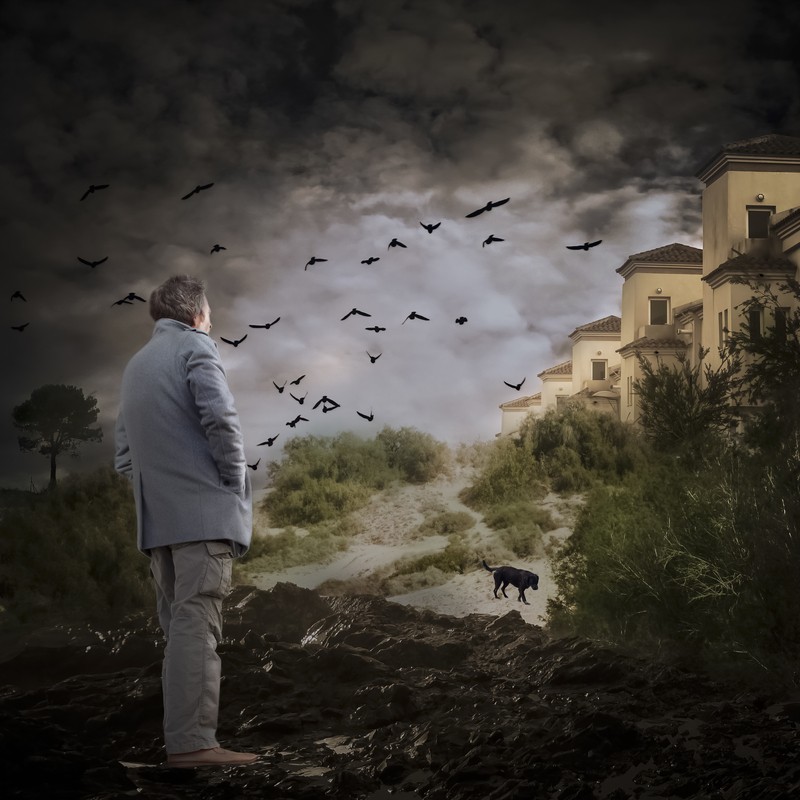Survivors of traumatic events – be it outlasting an incident in the wilderness or surviving the aftermath of a natural disaster may be more than just blind luck or a special skill set.
It might be, in fact, probably is, as ingrained in us as the unconscious act of breathing.
How your brain and sensory systems are wired for survival
As a human, you’ve got natural equipment that developed through evolution and helped keep your distant ancestors from being eaten by big animals or killed by rival human clans, and also made helped them to hunt and find food. Without those adaptations, you probably wouldn’t be here to read this article.
One example is your vision. Like most predators in nature, you’ve got two eyes in the front of your head that get slightly different views, which a portion of your visual cortex called the extrastriate cortex merges together to form a single image. Binocular vision, as it’s called, gives you the advantage of depth perception, and allows you to make sense of complicated environments that might be obscuring threats to safety or sources of food. “Our binocular region is a kind of ‘spotlight' shining through the clutter, allowing us to visually sweep out a cluttered region to recognize the objects beyond it,” Rensselaer Polytechnic Institute perception researcher Mark Changizi explained in a 2008 article. Your retinas also are equipped with neurons called M cells that are sensitive to fast movement, which enable you to spot and zero in on anything that moves quickly toward or away from you.
Hearing is another survival attribute. As neuroscientist Seth Horowitz explained in a 2015 interview, sound can travel a long way and provides information about things that you can’t see, such as something that’s enshrouded in nighttime darkness or concealed around the corner. For that reason, your brain has evolved not just to be sensitive to sound, but to process it 20 to 100 times faster than visual information, by circumventing the area devoted to conscious thinking. “You hear a loud sound?” he explained. “Get ready to run from it.”
If your brain picks up a signal of a threat—or feels under stress from having to struggle with some difficulty—it quickly kicks into survival mode. Even a small amount of stress triggers a reaction that starts in your brain, and releases hormones such as cortisol and adrenaline. “There's a flood of neurochemicals that affect your frontal lobe which messes up your logical thinking, your reasoning, “Lockheed Martin neuroscientist Bart Russell explains in the episode. “But it’s also what enables you e-enables your fight or flight reflex, and allows you to move quickly out of a situation if you need to. “ One of the effects of the stress reaction is to cause “tunneling” of your vision, in which your visual system becomes more efficient and focuses narrowly on the immediate danger.
Your brain’s survival equipment also includes navigational gear. Whether you’re roaming through the wilderness, as your ancestors did, or trying to figure out an unfamiliar urban neighborhood, your limbic system helps you to create a mental map of your route. The hippocampus, a brain region, contains cells that organize memories about specific locations that can aid you in finding your way. In another brain area, the entorhinal cortex, you have grid cells, which fit the environment into a regular pattern, almost like graph paper.
Your brain also has a special survival-oriented thinking mode. Most of the time, you learn things gradually, by building connections between actions or events and outcomes. But in some situations, you switch to a system called one-shot learning, and make quick decisions based on hunches.
Every once and a while you hear an amazing story of survival: The guy who used a pen knife to amputate his arm to free himself from a boulder or the folks stranded at sea who last months on little more than fish they catch and occasional rainwater and many others.
They all possessed that natural instinct to survive and you do too.
To learn about more elements of the survival instinct, please visit National Geographic.
